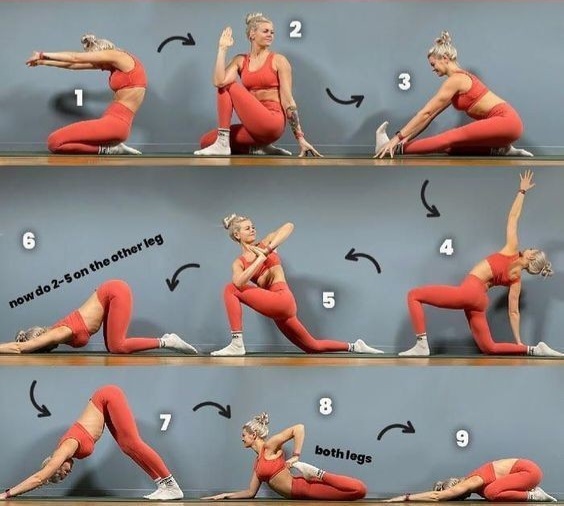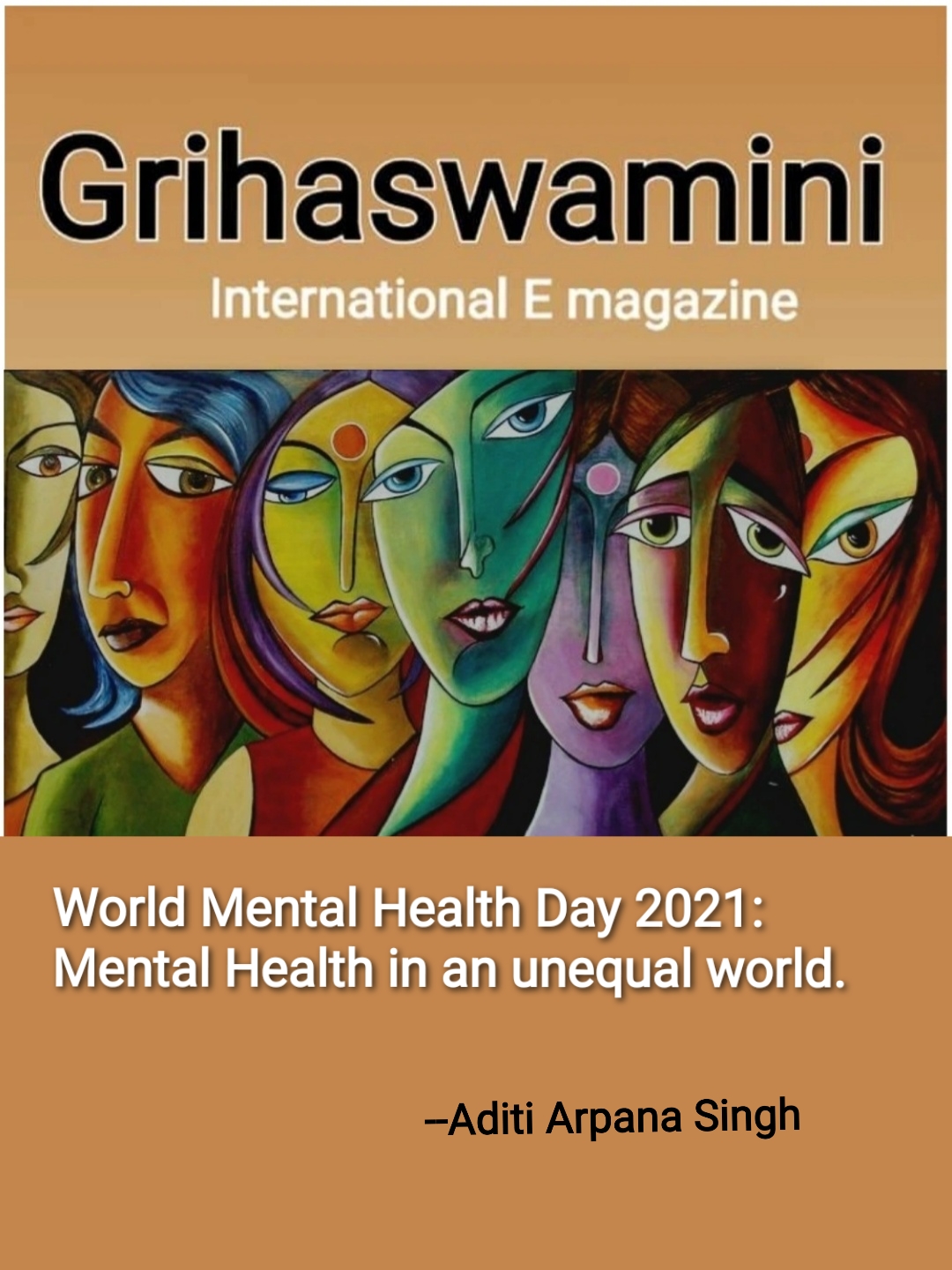COVID AND HEALTH
As the world continues to deal with the COVID-19 pandemic at least a third of the global population continues to find itself under a so-called ‘lockdown’, while others are having to follow some form of social distancing.
While many countries are considering plans to lift restrictions in the coming months, this will need to take place in a measured and phased manner to avoid a ‘second wave’ of COVID-19 cases. It could therefore be many weeks before most of us can return to any form of ‘normality’, and it’s highly likely that certain restrictions will remain in place for some time.
During these challenging times it is important to do what we can to support both our physical and mental well-being. Even if you’re working from home it may still feel like there is a lot of time to fill during the day.
From a mental health standpoint, living alone might be the most challenging circumstance in which to find yourself at this time. So what can you do to stay healthy and positive?
Many people are reaching out to friends to offer support if they need help during this time. However asking for help is often something people struggle to do as we default to the expected “I’m fine” response.
In these difficult times, it’s important to focus on some of the positives in our lives.
Although many of us can’t see friends and loved ones face-to-face at the moment, we can still keep in touch. Speaking with the people you care about can give you (and them) a mental boost.

There are plenty of ways one can keep in touch:
●Calling friends and family. Trying and arranging to speak with different people throughout the week. It can give us something to look forward to and keep us feeling social.
●Arrange an online activity. There are plenty of apps and services that let multiple people voice and video chat together. Playing games, telling stories, and catching up remotely. Sending messages. Try reaching out to some people we have not spoken with in a while, even if it’s just a message to say hi.
●Writing letters. If we are feeling old school, now might be a good time to write to someone we care about.Getting connected might be as simple as arranging a weekly video call, or we could even take advantage of some of the online gaming apps to give us another way of interacting virtually with our loved ones.
We could even make a point of reaching out to an old friend or someone we have not spoken to in a while; everyone is in the same boat and feeling disconnected from human contact right now, so it’s likely they’ll be pleased to hear from us .
●How to look after our mental health
With all the change and uncertainty in life at the moment, taking care of y
our mental health has never been more important. There are several benefits associated with positive mental wellbeing, including things like:
( i)reduced stress and anxiety
(ii) improved moods and clearer thinking
(iii) a greater sense of calm and increased self-esteem
(iv) improved relationships.
For some people, talking about mental health issues can be difficult. They may not know exactly what their feelings are and how to express them. Although this can seem challenging at first, getting to understand your own needs is an important first step towards managing mental health and stress.
●Feeling in control can go a long way to helping you feel better. So,
Think about how you’re feeling, what your worries are, and what things are stressing you out. Try writing these points down to give you some clarity, and decide what you have control over and can take proactive steps with.
There are also several tried and tested methods that are proven to help people in various situations deal with trying times such as the COVID-19 pandemic.
●Mindfulness is a practice that is beneficial no matter what’s going on in the world. If things seem a little stressful at the moment, and you’re finding it hard to focus, it could be the ideal remedy. But what is mindfulness?

Put simply, being mindful is the act of being fully present and aware of where you are and what you’re doing. It’s something that all people can do, although few of us take the time to actually spend doing it. However, it can be a great first step when discovering how to stay healthy during lockdown.
Practising mindfulness can help to reduce stress and anxiety, improve your memory, and help with concentration. And maintaining a mindful life can benefit our emotional health, relationships and communication skills now and in the future.
A great place to start with mindfulness is with some basic breathing exercises. Take one minute out of your day to sit and focus on your breath. Notice the air going in and out of your nostrils as your chest rises and falls. If your mind wanders, gently bring it back to focus on our breathing.
●Living with other people during lockdown can mean many different things.
You might live with your partner, your friends, or in a flatshare with people you don’t know that well. Lockdown could therefore produce a unique and challenging dynamic, particularly if you are all working from home at the same time. However there’s nothing to stop you making the most of the opportunities this can present.
Of course any activities need to be mindful of social distancing guidelines in your community, particularly if one of the people you live with is symptomatic or in a high risk category and is self-quarantining at home.
●Practice mindfulness exercises
Connect, or Reconnect Through Shared Interests
Unless you’ve lived with someone for many years there’s likely to be something new you can discover about the person or people with whom you live. There’s potentially much you have in common that you didn’t realise until now.
Discovering each other’s shared interests might have added benefits. If you’re both missing taking part in a specific activity, such as skiing, you can at least talk about your experiences and make plans for continuing to pursue this interest in the future.
You also could discover new interests and find something that you and your flatmates are all enthusiastic about doing. There might be something you can do together to pass the time such as a favourite board game or learning a dance routine!

●Start a Shared Project
One way to focus your attention and connect with those you live with is through a shared project. This can take any form you like based around a common interest or shared life experience.
You can start small, simply cooking together or completing a jigsaw puzzle can give a sense of community. Are you artistic? Why not create something together. Is there a home improvement project that you have been putting off for months, or a room that needs clearing out and reorganising? If so, now is the time to tackle it as a team. You could even turn your project into a competition between each other to keep you motivated.
●Try to keep busy
Although it can (understandably) be hard to feel motivated and productive at the moment, keeping your mind active can be beneficial for positive mental health.
Plan Regular Exercise Sessions
Most people fall into two camps when it comes to lockdown and exercise. There are those fitness junkies who fill their time with workouts to help them stay in the best shape possible. Then there are those of us who don’t exercise regularly but feel like we should, and may not be sure where to start.
If you’re in the latter camp, it’s important to find ways to exercise where you can; this will not only keep you fit and healthy during lockdown but is also a productive way to use your time – especially if exercise is one of the few reasons you’re allowed to leave the house. What’s more, evidence shows that exercise can make you happier, something we all need help with during this time.
Whether you already have workout equipment at home, have just bought a yoga book, or need to find a bodyweight workout online, there are plenty of ways to keep fit during lockdown. Schedule regular exercise sessions to keep you focused, even 20 minutes a day will make a big difference!
Stay physically active
As well as taking care of your mental health during lockdown, it’s equally important to stay on top of your physical wellbeing. With gyms closed and the daily commute cancelled for most of the places.
Get moving
The hardest part about being active during lockdown is starting in the first place. The sofa looks extra inviting at these times, and the bed extra comfortable. But try and resist the temptation to spend all of your time there.
●Find a routine
Now you’ve started being active, the key thing is to stick with it. The NHS of the UK recommends that adults aged 19 to 64 need to do at least 150 minutes of moderate-intensity activity a week. This includes being active every day and doing strengthening activities at least twice a week.
So, what does ‘moderate-intensity activity’ look like? Well, things like brisk walking, riding a bike, dancing, and rollerblading all count. You can try and beat your daily steps target, follow a daily exercise YouTube channel, or try a couch to 5k program.
●Make Exercise Competitive
Speaking of competition, why not make your exercise competitive? You may not be able to go running or cycling together depending on the specific restrictions in your local area. However you can still measure performance and compete against each other in other ways.
Use fitness tracking apps to measure times and distance, or if you have a large enough room in your house make time to do an online workout together. Be creative and have prizes and forfeits to make your competition more interesting – for example, whoever finishes last has to cook dinner or clean the bathroom.
Set yourself a challenge
When it comes to fitness, gradual progress can lead to some pretty significant results. If you’re thinking about how to stay healthy during lockdown, taking a fitness challenge could be exactly what you’re looking for.
There are some great ways you can challenge yourself from home, without the need for any extra equipment. Will you try and complete 100 press-ups in one go? Or is your aim to hold a plank for three minutes?
●Try yoga
Yoga is good for the body and mind, and it’s something that just about anyone can do. As well as burning calories and toning muscles, it gives you strength, flexibility, and an awareness of your mind and body.
We mentioned the benefits of mindfulness earlier in this post, and yoga can help with that too. It encourages you to relax and focus on your breathing, stimulating your nervous system. What’s more, you’re sure to be able to find a workout that’s suitable for your fitness and ability level.
●Start Cooking, or Do It More
Cooking is like exercise in that most people either love it and do it often, or know that they don’t cook fresh meals as often as they should but aren’t sure how.
During lockdown, cooking can be a great way to manage both your mental and physical health. Challenging yourself to try new recipes or simply cook a healthy meal from scratch instead of ordering take out, can help focus the mind and give you a sense of achievement at the end of the day.
Many people are using lockdown as a chance to hone their baking skills. While we all like to indulge in a sweet treat every once in a while, try cooking wholesome and nutritious meals to support the exercise you’re doing, as it will help you to feel more energetic during this time.
●Now is the perfect time to explore your hobbies – or find some new ones. Challenge yourself to read that book you’ve been putting off, start that journal you’ve always wanted to keep or kick off your exercise regime.
Find a new hobby in lockdown .Whether it’s running, dancing, cycling or weight lifting, there are plenty of activities you can pick up inside and outside the home. Choose one and get active!
Listen to music of your choice , dance or meditate, whatever you feel like .Music is very good therapy.
Have a gratitude diary to remain positive and happy. Count your blessings .
●Get enough sleep
Sleep plays a fundamental role in mental health. However, when daily life gets disrupted, it’s easy to fall into bad sleep cycles. As this post from SleepFoundation.org outlines, there are many challenges people are facing with their sleep at the moment, with added stress, a disrupted schedule, and excess screen time all causing issues.

By identifying a potential issue, you can work on understanding the habits, solutions and strategies for dealing with sleep deprivation.
Try and focus on maintaining a regular bedtime and avoid the temptation of lying in bed for ages in the morning or during the day. Take some time to wind down at the end of the day and avoid having caffeine or alcohol late at night.
●Maintain a healthy, balanced diet
If you’ve been working from home or furloughed recently, you’ll no doubt have noticed the benefits of having your own kitchen nearby at all times. You may find yourself eating more of all the wrong things, which, although comforting at the time, can be problematic.
There are so many benefits associated with having a healthy and balanced diet. It’s good for your heart, your bones, your immune system, and your mental health. So, maintaining a healthy diet during lockdown is something we should all think about.

Learn about healthy eating
The term ‘healthy and balanced diet’ can sometimes seem like a difficult one to understand. We’re often bombarded by messages and advertisements about food that seem to conflict each other, so how do we know what’s healthy?
Well, we can start by understanding the basics of nutrition. Learning about how what we eat impacts our bodies and minds is a good place to start.
Staying healthy is a habit
Evidently, it’s vital that we all take care of our physical and emotional health during this difficult time. In doing so, we’re better placed to look after ourselves and others.
With some simple changes to your daily routine
enough sleep, eating well, exercising, and keeping in touch with people, you can boost your mood and stay healthy.
Try a new recipe
Cooking can be a great way to relax and try something new. If you’re looking to put your newly found nutritional knowledge to the test, trying a new recipe is a great excuse.

The BBC Good Food website has a wide selection of healthy recipes. You can even get creative with whatever ingredients you’ve got in the fridge. Experiment with new flavours, try a dish you’ve always wanted to, or cook up your restaurant favourites.
●Keep hydrated
One aspect of healthy eating that’s sometimes overlooked is choosing healthy drinks for your daily routine. Keeping hydrated is essential for staying healthy, and it brings many other benefits besides.
If you’re exercising a lot, you’ll want to make sure you’re drinking plenty. Many activities can feel physically and mentally much more difficult without proper hydration. Similarly, without enough fluids, you’re more likely to have a hard time concentrating and feeling alert.
So, staying hydrated can prevent you from feeling physically and emotionally drained. But how much should you drink? According to the Eatwell Guide, you should aim for six to eight glasses of fluid a day. This includes things like water, tea, and coffee.
Alcohol intake should be limited .
There is also evidence that stress drinking can result in greater feelings of depression, anxiety, and low mood. So, it can be a good idea to limit how much you’re drinking during lockdown.
●If You Have Children
We know that keeping children entertained during lockdown is a considerable challenge. Children want to be outside, see their friends, and spend time with other family members. However there are some simple ways to help them stay connected and keep occupied during this time.

Find Things That are Fun Yet Still Educational
One of the biggest concerns parents currently have is about maintaining their children’s education. In our previous lockdown essentials article we looked at the use of online education platforms and apps.
As well as using those resources, think about what other activities you can do that are both fun and educational. You usually won’t have to look far for inspiration. Many toys, such as Lego, will have something that you can use as an educational element, as well as books and board games.
Remember that your efforts at education don’t have to be blatant and can be disguised as play time. Even something as simple as asking your child to write a story about their toys, create a musical performance for the family, or do a scavenger hunt in the garden could be sufficient to keep them entertained while continuing to learn.
Webliography References

Jyotirmaya Thakur
Author , Motivational speaker , Reiki and HFHE therapist .
UK





